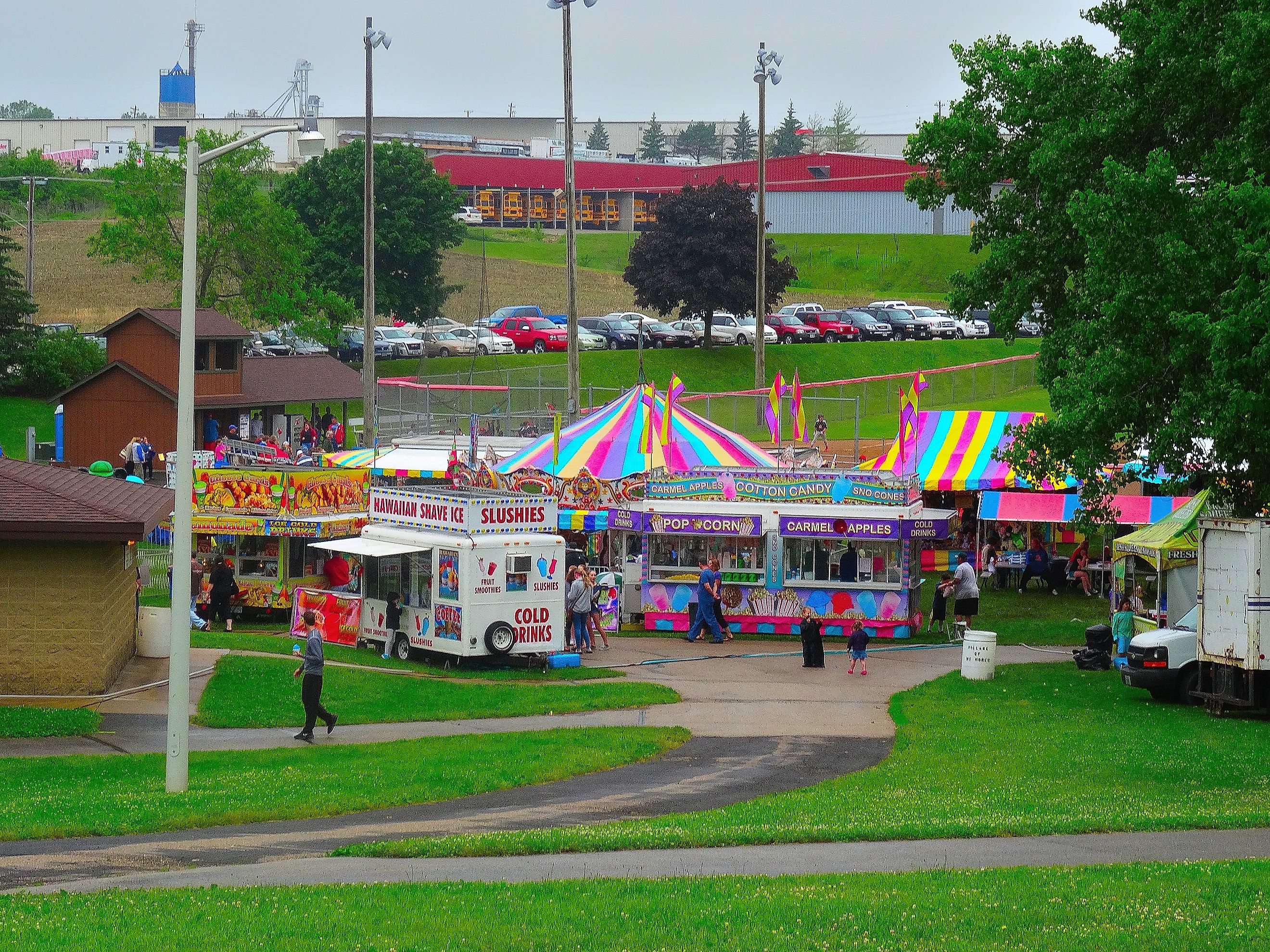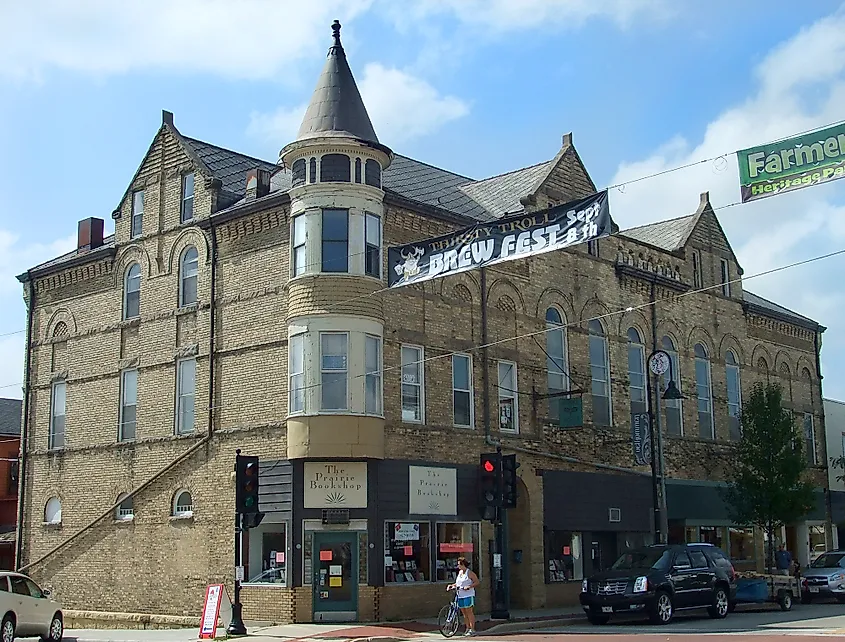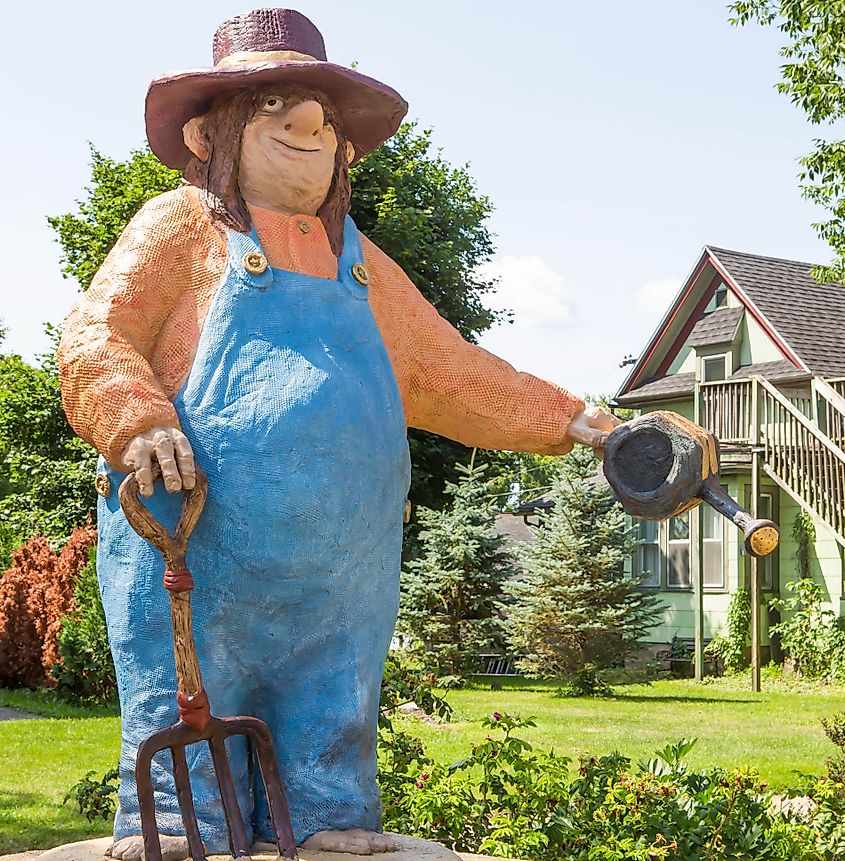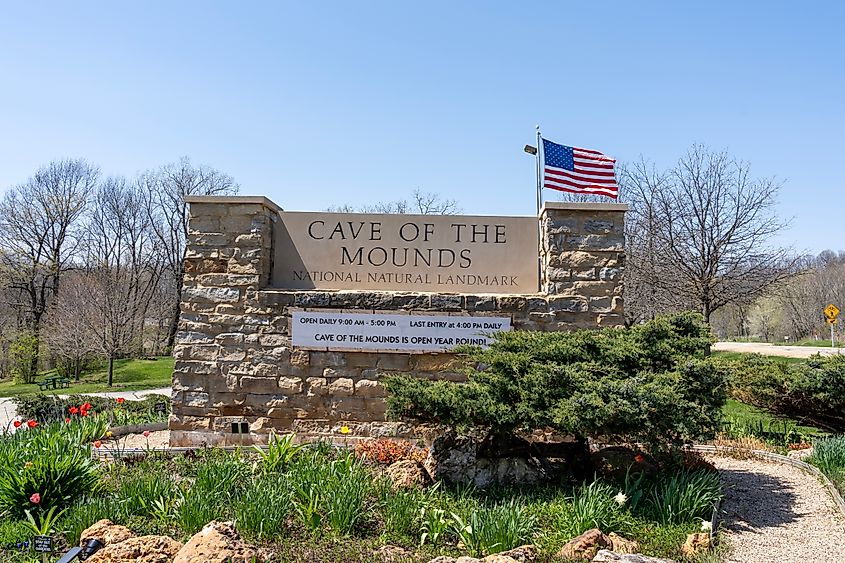
The "Troll Capital " of the Midwest is Wisconsin's Scandinavian Piece of Paradise
Located in the Driftless Area of Wisconsin, Mount Horeb was untouched by the glaciers from the last Ice Age that moved across what is referred to today as the Midwest. The Midwest is known for its flat landscapes, but in the Driftless areas, the terrain is more diverse and that is the case with Mount Horeb. The area is marked by hills, valleys, ridges, and meandering waterways. There are dense forests, farmland and meadows. The hills rise sharply around places like Blue Mound State Park and the mount offers sweeping views.
Some mistakenly think Mount Horeb is far from civilization, but the town is only about a half hour drive from Madison, the state’s capital. The town’s culture was heavily shaped by European immigration in the mid-1800s and developed a quirky association with troll statues and carvings, becoming known as the “Troll Capital of the World.” Before the European immigrants arrived, early inhabitants included indigenous tribes like the Ho-Chunk Nation (also known as the Winnebago tribe), the Sac and Fox tribes. The Ho-Chunk people are among the most famous in the region.
European Heritage and its Origin

In the middle half of the 19th century, European immigrants of predominantly Norwegian heritage relocated to the region because of its fertile lands and the promise of opportunity. The Lutheran church was at the center of settlement life. One of the places where Scandinavians marked the area is in their Nordic architecture. Even to this day, the culture of the town is a Norwegian-American blend, as their ethnic celebrations and customs have been well preserved and honored. The downtown area has a welcoming atmosphere, and the residents are friendly.
Events and Traditions

The Mount Horeb Frolic is a fine example of the way the town has preserved its European heritage. This summer festival, held in June, includes a parade, live music, carnival and fireworks. It is a family-friendly affair with food vendors, games, and inclusive activities. The Frolic includes traditional Norwegian dances, costumes, and arts and crafts. In the fall, the town hosts the Fall Heritage Festival, which lasts for two days. The festival boasts traditional music, food, and demonstrations. Norwegian dishes such as lefse and krumkake are enjoyed, and local artists express their traditions through rosemaling, a decorative painting craft. The event offers deeper historical exploration through the retelling of early settlement stories. Syttende Mai (Norwegian Constitution Day) is a springtime celebration in the month of May. This was the day Norway declared independence from Sweden. Locals partake in a traditional Scandinavian breakfast, dress in traditional Norwegian attire, and enjoy folk music.
Tollway: A Tribute to Folklore

In true Scandinavian style, the town has 36 official life-size trolls carved in wood and metal for tourists to discover. There is even a troll map that can be obtained to make sure none of these funky works of art are missed. Trolls likely emerged from Norse mythology, once threatening monsters, they eventually became regarded as mischievous, kind creatures that according to legend live in mountains, caves and forests. Modern examples of trolls appear in famous fictional literature like The Hobbit by J.R.R. Tolkien and C.S. Lewis’s The Chronicles of Narnia.
Mount Horeb’s Mainstreet was affectionately nicknamed Trollway, creating a whimsical vibe to the town. The town’s romance with trolls began in the 1970s when a local business owner placed a troll statue outside his Scandinavian-themed shop and the idea caught fire.
Tourist Sites

The town of Mount Horeb is bursting with natural beauties and historical and commercial landmarks. There are many hiking trails, rich woodlands, and nearby ski locations in which to delight. Blue Mound State Park is a short drive from the and is plentiful in hiking, biking and camping with striking panoramic views of the valley. In winter, the park becomes a popular destination for cross-country skiers and snowshoers.
Stewart Lake County Park provides visitors with fishing, kayaking and picnicking spots, surrounded by serene beauty. There is a lake enveloped by walking trails, lined with maple, oak and birch trees. In the fall, one can enjoy the foliage, with vibrant shades of red, orange and yellow.
Just a short drive from the town is the Cave of the Mounds, a “jewel box” of some of America’s best caves. This landmark is admired for its crystal formations, stalactites, stalagmites, and flowstones. Rainbow Cave is another where mineral deposits have created colorful rock formations. Kickapoo Indian Caverns are a bit further out, but they offer an extensive cave system, underground passages, and Native American history.
The Mount Horeb Area Historical Society Museum is a mouthful but an excellent place for history buffs to stop. The museum showcases the town’s European heritage and farming equipment, clothing, tools, and carvings of early settlers. Here, one can learn about the families that built the town.
The one room, Gruet Stone School house, is a well-maintained relic from the 19th century, which gives visitors a glimpse into the rural life of more than a century ago.
The Trollway Gift Shop, Open House Imports and The Little Viking Bookstore are some of the unique boutiques in downtown Mount Horeb. Visitors will find troll souvenirs, Scandinavian gifts, such as wood carvings, clothing and other ethnic trinkets. The bookstore has a Nordic section full of folklore literature. One shouldn’t miss the first-rate antiquing and historical treasures.
The Grumpy Troll Brew Pub and Schubert’s Diner and Bakery are popular with locals and Tourists. The Grumpy Troll is known for their handcrafted beers and robust pub fare. Schubert’s is a family-owned eatery with authentic Norwegian dishes like lefse (a flatbread), krumkake, a delicate cone-like cookie, and American-style comfort foods.
Parting Thoughts
Just a short jaunt from busy Madison is the eccentric little town of Mount Horeb, the Troll Capital of the World. It is admired for its verdant rolling hills, ridges, and valleys. Known for its Scandinavian-themed events, natural beauties, life-size troll statues, and rich history, there is much about this European-American village to attract tourists and to be prized by generational residents.











